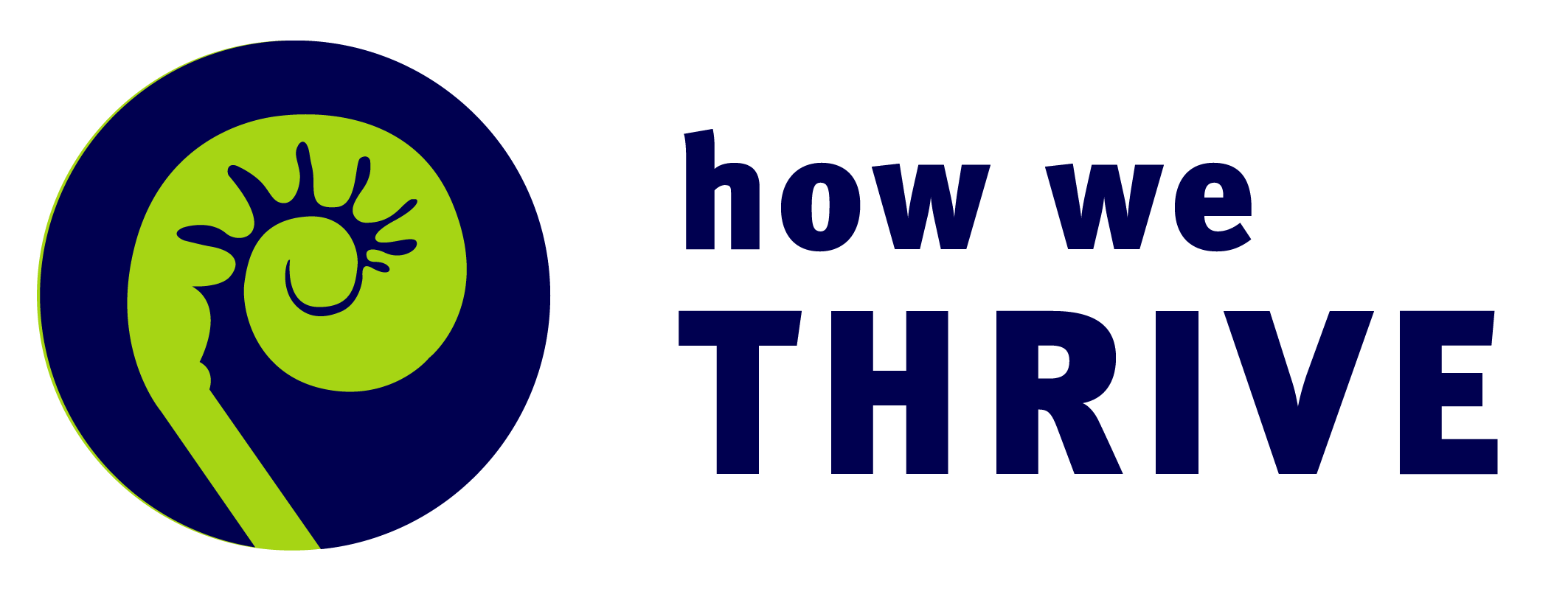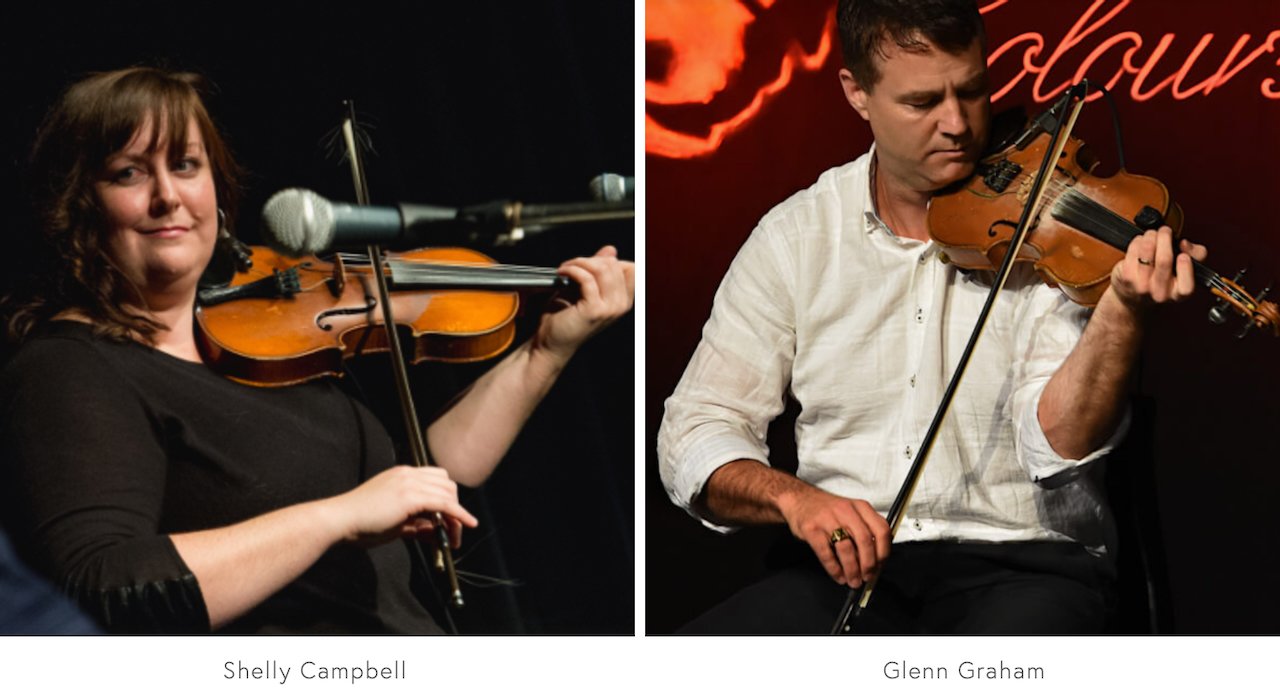Why Gaelic matters to a Cape Breton fiddler
February 24, 2023
Host: Mike Kennedy
Guests: Shelly Campbell, Glenn Graham
In this visit, Cape Breton fiddlers Shelly Campbell and Glenn Graham, shared their thoughts on music, community, identity, and what matters most to them.
Host Mike Kennedy reflected that it is clear from at least a millenium’s worth of historical commentary that the Gaels had an unusually strong affinity for music, and that it was not only integral to community life but contributed to their distinctive identity. Large-scale migration from the Highlands and Islands began during the “Golden Age” of Scottish violin, so it should come as no surprise that Scottish violin music helped shaped the sense of community and identity in Gaelic communities on this side of the Atlantic, and that it should become particularly associated with the area where Gaels settled in greatest numbers – Cape Breton Island.
Mike reminded us that today, music is merely one of a vast number of forms of entertainment that can be consumed virtually around the clock and from around the globe with little or no need even to interact with other human beings, let alone to share cultural reference points or a common sense of community. He asked: Does Scottish violin music still represent distinctive Gaelic musical and cultural values? Can it continue to shape community and contribute to a unique sense of Gaelic identity?
What we heard
The importance of family, community, cassette tapes, house parties, listening, watching and shared generational musical appreciation—these were all themes in Mike’s conversation with Shelly Campbell and Glenn Graham.
Glenn has a family tree full of musicians, pipers, and composers on both sides of his family. When Mike showed him a picture of his grandfather, legendary fiddler Donald Angus Beaton, playing in his Mabou kitchen, Glenn said he felt emotional.
"He was such a grand figure in terms of influences," Glenn said.
Sundays at Donald Angus and Elizabeth Beaton's was a time for music. Although he was young when his grandfather died, Glenn remembered sharing a special moment with him.
“Donald Angus presented me with a fiddle when I turned seven years old. It felt like he felt that this fellow could possibly be the fiddler in the family . . . It was a really formative moment. I could see myself continuing."
Glenn and his cousins then began lessons with their uncle Kinnon Beaton.
"And Betty Lou was always there, too," he said. "She was a huge influence in terms of providing correctness and interpretation for tunes."
Growing up in Judique he would visit his friend Allan's home, where Allan's father Buddy MacMaster was often practicing in the background.
“So I got a lot of free Buddy MacMaster concerts that no doubt had an influence,” he said with a laugh. Buddy’s dances in Glencoe were an important learning space as well.
And then there were his parents. His mother played cassette tapes of fiddle music daily, and sometimes chorded along on the piano. His father played the fiddle a bit and sang Gaelic songs. In fact, Glenn’s first stage performance was not playing the fiddle but singing a Gaelic song with his father.
Shelly said the extended family of community made all the difference to her as a young fiddler. Her bus driver was Theresa MacLellan of the larger-than-life musical MacLellan family. Theresa would sometimes pull the bus over and play Shelly’s fiddle. The aforementioned Betty Lou Beaton was her grade four teacher, and her father was often taking home tapes from the pulp mill, where there was "a fast-paced trading of tapes."
“The house party tapes, I think both of us would say in our early years, were essential," said Shelly.
Also essential were live parties at Johnny and Sandy MacDonald's on Glendale Mountain Road.
“It was so easy to drop in and start a tune and party in seconds. It was like putting a match to a piece of hay," Shelly said. “Those parties for me growing up, I would not have stayed in the music if it wasn’t for that.”
She remembered the first time she was “called up” to play at a party. Respected fiddlers Alex Francis MacKay and Donnie Dougal MacDonald came early. It was the beginning of the up close and personal social learning experience that was to shape Shelly’s style.
"You really couldn’t be any closer and you learned a lot through mimicry. Seeing somebody's bowing, somebody's fingering, and seeing how they sat in the chair and moved their body."
She imitated Buddy’s grounded laid-back sway as he played, and Donnie Dougal’s leaning into certain notes. She said she learned a lot about timing by watching Kinnon Beaton’s foot.
At the house parties she was aware that she was in the middle of people who really knew and loved the music. The informed listener is important to keeping the music going, she said.
“They aren’t really judging you but they help you stay on track in a real encouraging way.”
Glenn agrees and credits his mother for keeping him on track.
My mother would help me with the locally accepted norm for what is correct for a tune. If you are playing something incorrectly, at least for a local area, (or not) the norm or what people are used to, if you go beyond it too much, the element of correctness being lost is noted. That was important. My mother would stop and say well you don’t quite have that note right. So that set in my mind that you have to be correct and respectful to players who wrote those tunes.”
“Yet musical notes are only a skeleton,” said Shelly.
“It is up to you to dress up that skeleton however you like. If you don’t dress it up it's pretty plain and boring—it's fine, but it's plain and boring. And if you overdress it, well, it’s just kind of tacky."
Musical nuance and etiquette are best learned by listening and watching, they agreed.
Glenn said "it was rewind, play, rewind, play" when he was listening to tapes. . .. I listened to specific recordings over and over and over again."
After a lot of work there was a "light bulb moment" when Glenn was around 15 years old. He was really hearing inflections and nuances in the music.
"It hit me hard in the heart . . . All those tapes and modeling and playing them back and listening to them was important."
He demonstrates techniques used by fiddlers like his grandfather to "dress up the skeleton" that Shelly mentioned. Fiddlers may make a pipe drone sound or double up on notes playing two strings at a time.
Shelly says this is the blas (flavour) that people allude to when speaking about highly respected musicians. She thinks the Gaelic language influences the blas, even among English speakers who grew up in Gaelic-speaking homes and communities. There's a lilt that transfers to the fiddling technique.
"There's a letting off and pushing in," adds Glenn. "There's a pulse to it."
Everything is interlinked, concluded Glenn. "Losing one aspect can affect the other. It was a way of being, a way of life. It is important to play close attention to those rhythms."
Covid has seriously impacted the up close and personal house parties, but Shelly was heartened recently when playing at the Frolic and Folk pub in Iona, where a Gaelic immersion was taking place. There was lots of Gaelic spoken, music, song and dance. It reminded her of the importance of the social community setting.
"Music provides such joy or healing . . . Our crew in the music or Gaelic community is really important to us. You have an extended family., , It's the power of the music in the moment. It takes over your body when you are surrounded by such a great welcoming community. And I think that is why Gaelic is so important, because it provides the chance to get together and do these things that are so healthy for mind, body and soul."
What we said
Some of our comments were shared in the chat stream during the conversation with the guests. Then, in the breakout rooms, we all responded to the stories we’d heard, and shared our own reflections. When we returned to the main room, we wrote some highlights and themes in the chat stream. Read all our comments.


